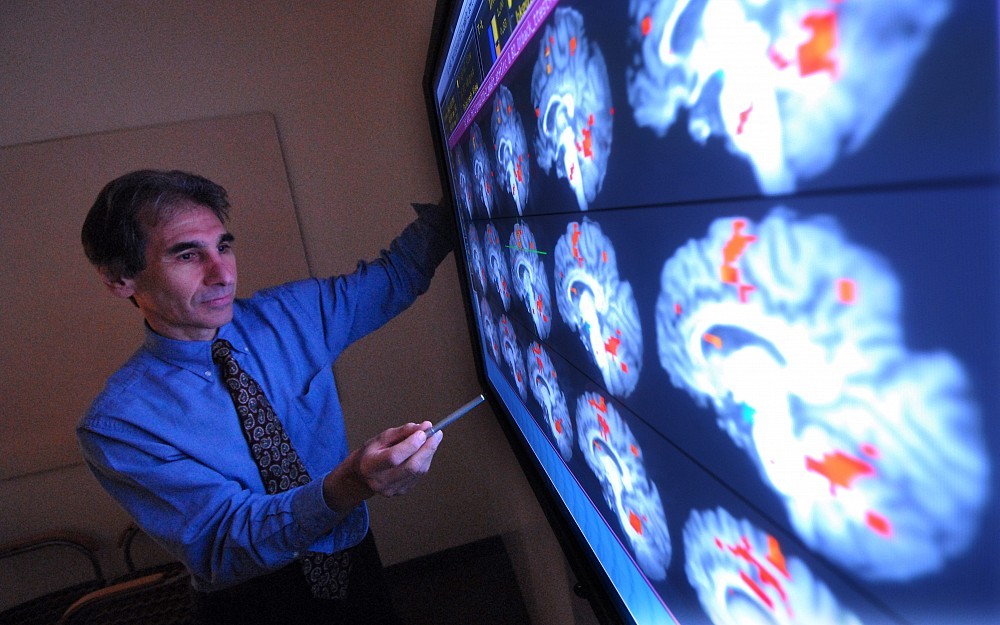
Chromium Supplementation May Improve Memory in Older Adults
CINCINNATIAging adults with early memory decline may benefit from supplementation with chromium picolinate, say University of Cincinnati (UC) researchers.
Results of a small pilot study, led by Robert Krikorian, PhD, UC associate professor of psychiatry, were presented this week to the medical community at an annual neurological meeting.
Chromium is a nutrient important to insulin signaling and has been shown to improve blood sugar control in patients with diabetes and insulin resistance. Picolinic acid (picolinate) is added to some chromium supplements to aid in absorption.
Insulin is a hormone that regulates how sugar (glucose) is stored and moved throughout the body and the brain. When glucose is not properly transported, the risk increases for a number of age-related disorders, including memory loss and dementia. Insulin resistancethe bodys inability to use insulin efficientlyhas been linked to physiological changes associated with Alzheimers disease.
Based on his knowledge of insulins role in brain function, Krikorian hypothesized that chromium supplementation might improve memory and brain function in older adults suffering from early memory decline.
Krikorian and his team conducted a double-blind, placebo-controlled trial of 21 older adults with early memory changes. Eleven study participants received 1,000 micrograms of chromium picolinate supplementation daily for 12 weeks. Ten study participants received a placebo.
The researchers assessed fine motor control and speed, and evaluated verbal memory by asking participants to learn and remember a list of words. Both assessments were performed prior to treatment and again during week 12.
Study results suggest that chromium picolinate supplementation enhanced memory and motor function, says Krikorian.
A subset of participants was also evaluated using functional magnetic resonance imaging (fMRI). The group was asked to perform a memory test during fMRI scans.
Scans of participants receiving chromium picolinate supplementation showed greater activation of the left frontal and left parietal cortices of the brain during the memory test, says Krikorian. We did not see the same level of increased activity in the placebo group.
Our findings suggest that chromium picolinate supplementation in older adults with early memory loss could enhance cognitive function, says Krikorian. We would need to further evaluate this treatment option in a larger study to truly assess the benefit and preventive potential.
Nutrition 21, a New-York based nutritional bioscience company, provided funding and supplements for Krikorians study.
Coauthors, all from UC, include Caleb Adler, MD, James Eliassen, PhD, and Marcelle Shidler, PhD.

Psychiatry faculty Jim Eliassen, PhD, (left) and Robert Krikorian
Tags
Related Stories
University of Cincinnati College of Medicine celebrates Class of...
May 6, 2025
The University of Cincinnati College of Medicine celebrated the Class of 2025 at its annual Honors Day, recognizing graduates' achievements, resilience through the COVID-19 pandemic and commitment to compassionate, innovative care. Highlights included a 100% Step 2 pass rate, top residency matches and powerful moments of reflection and recognition.
Growing heart failure epidemic calls for prioritizing primary...
May 5, 2025
A rapidly growing heart failure epidemic calls for prioritizing primary prevention, according to a new scientific statement from the American Heart Association published in Circulation in April. The statement reviews the current evidence for predicting heart failure risk and offers risk-based strategies for heart failure prevention.
Machine learning brings new insights to cell’s role in...
April 30, 2025
Researchers led by the University of Cincinnati’s Anna Kruyer and the University of Houston’s Demetrio Labate have published research in the journal Science Advances applying object recognition technology to track changes in brain cell structure and provide new insights into how the brain responds to heroin use, withdrawal and relapse.
